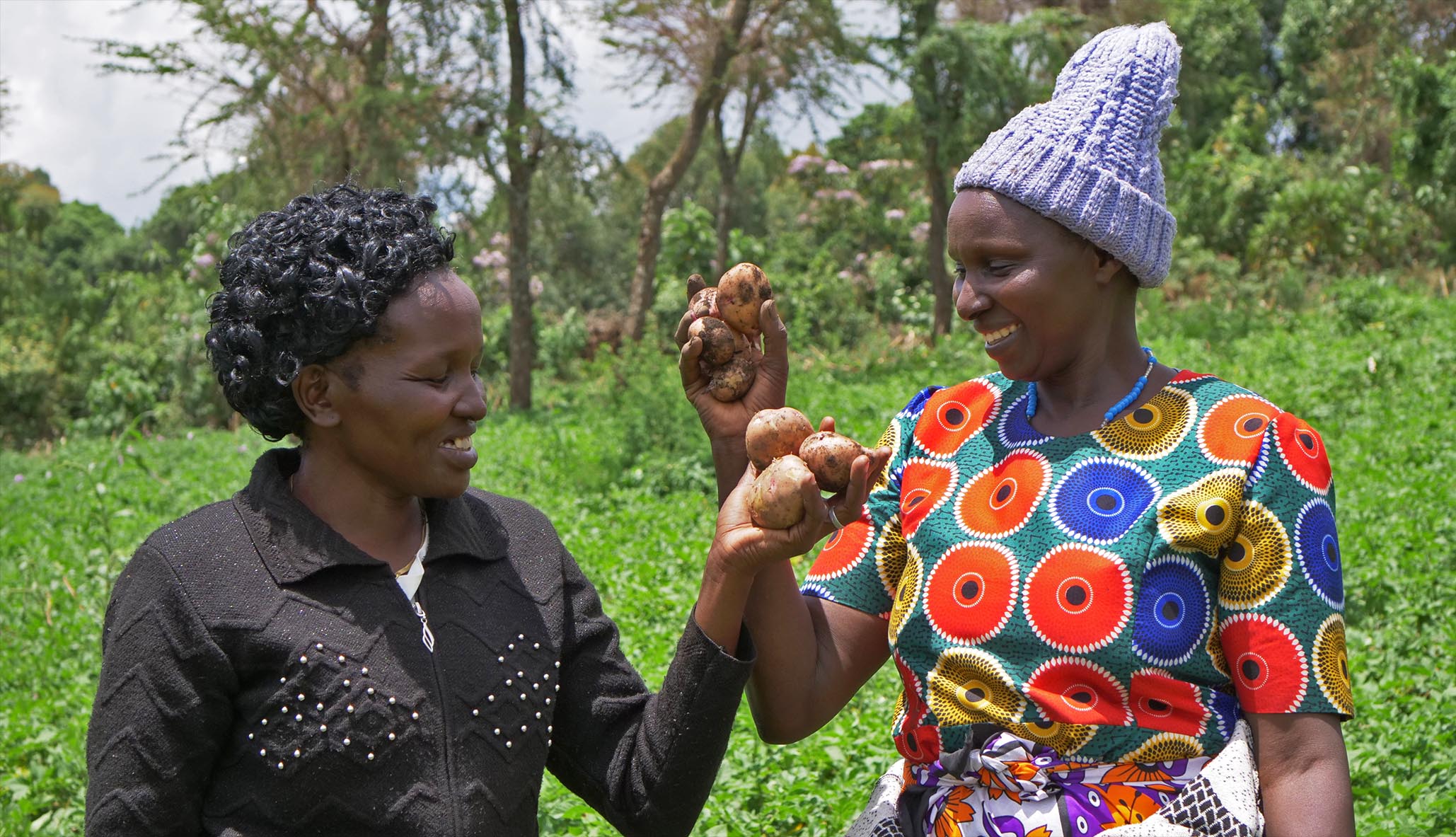Through its Climate Innovations and Investment Facility (CIIF), CRAFT supports agri-SMEs with matching grants to implement climate-smart agriculture practices and technologies.
The storage facility was commissioned last year by Resident District Commissioner, Mr Shafiq Ssekandi, in the presence of district leaders, the CRAFT team (Agriterra and SNV), the management of the cooperative and farmers.

The facility is used to store potato seeds produced by seed multipliers, who were trained through CRAFT, and those procured from National Agricultural Research Organisation’s (NARO) Institute – Kachwekano in Kabale and Namakwalanda, a seed breeding company.
Mr Shafiq recognised that the partnership with CRAFT has supported the district to address challenges farmers face in a changing climate.
‘I planted eight acres of maize last season and they dried at flowering stage. I lost five acres because I could not afford irrigation. When we cut the trees and encroach on wetlands, we are becoming a problem to ourselves, I am happy the project is addressing such issues of climate change, environmental conservation, and agriculture, ’Shafiq notes.
The journey to a diffuse light store
Under CIIF, the cooperative committed to increase productivity of potatoes and enhance the capacity of 3,000 smallholder farmers through climate-smart agronomic practices and technologies such as access to improved seeds, integrated pest management, ridge making, use of fertilisers and linkages to input suppliers, and mechanized farming.
In the beginning, the farmers were not accustomed to CSA practices, and this made them hesitant to adopt them. As Fidel Kamari – the Chairperson of the Cooperative explains, ‘The farmers had a negative attitude to these practices. In addition, the high costs for accessing improved seed varieties from NARO has always limited farmers from engaging in CSA interventions.’
To increase adoption of CSA practices, the cooperative, with support from CRAFT, provides farmers with seed loans to subsidise the cost of seeds from NARO which are UGX300,000 (£76) a sack. This subsidy has led to increased adoption of using improved seeds which in turn, has led to increased yields.

“We were using our home saved seeds and after joining CRAFT, we realised the difference in using improved seeds that we got from Kachwekano. We would plant one sack of potatoes and harvest five bags, but with improved seeds, we harvest between 8-9 bags. Therefore, having seeds nearby will motivate us to mobilise more farmers to join our group, grow improved seeds and increase on acres of land,” Enid Sayuni, chairperson of Ndimiro Farmers’ Group notes.
Additionally, CRAFT linked the cooperative to source foundation seeds. The cooperative procures foundation seeds from NARO and distributes to farmers (Seed multipliers) at no cost. The seed multipliers produce quality declared seeds (QDS) from foundation seeds and they sell them to the cooperative. The QDS is then sold to farmers – both on cash and credit.
‘When we went to Kachwekano, I realised that the potato seeds are generated from our usual potatoes. As a Trainer of Trainers, I encouraged my group members to take up the potato seeds and grow them,’ Edward Hageteka, one of the trained seed multipliers notes.
Currently, 120 seed multipliers have been trained and this according to Fidel, has increased availability and affordability of potato seeds to small holder farmers in the community.
Despite these developments, the cooperative and farmers continued to grapple with the lack of storage facilities. ‘We trained our seed producers, but we continued to have poor seeds due to unconducive storage. Our seed multipliers grow and handle the seeds very well but when it comes to storage, they lose it,” Fidel notes.
It was against this background that the cooperative constructed a diffuse light store to maintain quality of seeds produced by farmers since most farmers have no capacity to construct standard storage facilities on their own.

‘All the farmers from the cooperative are buying seeds from us because the transport cost to buy from Kabale district has reduced,’ Kamari notes, adding that ‘the problem of storage which was existing before CRAFT is no more.’
The farmers were using home saved seeds and they were stored in their homes – something that resulted in affected tubers from germinating well.
The diffuse light store comprises of two multitiered rows with shelves - has a provision for separate storage of different varieties such as Kinigyi, Rwangume and Taurus, with a section roofed with translucent sheets to allow for the usage of sunlight to reduce electricity/energy usage during the day and this allows for the storage of seeds for an extended period of time without compromising quality.
Fidel explains that ‘Now that farmers have known the importance of buying seeds from the right seed source, they expect quality seeds that yield highly, that are not attacked easily by diseases, and this facility will help us to store seeds from our farmers well and meet their expectations.

Looking ahead, Kamari hopes the cooperative will construct screenhouses and start producing foundation seeds and this will reduce the costs of procuring foundation seeds from NARO in Kabale District.
The cooperative is also finalising an Ambient store - a facility for storing ware potato store which will ease the challenges involved in hooding potato during marketing. The ware potato store will be a one stop centre for potato buyers hence increasing the cooperative and farmers bargaining power. The current buyers incur costs of aggregating produce from multiple bulking centres, but with this facility access to market will be so much simplified.
By Sarah Mazirwe










